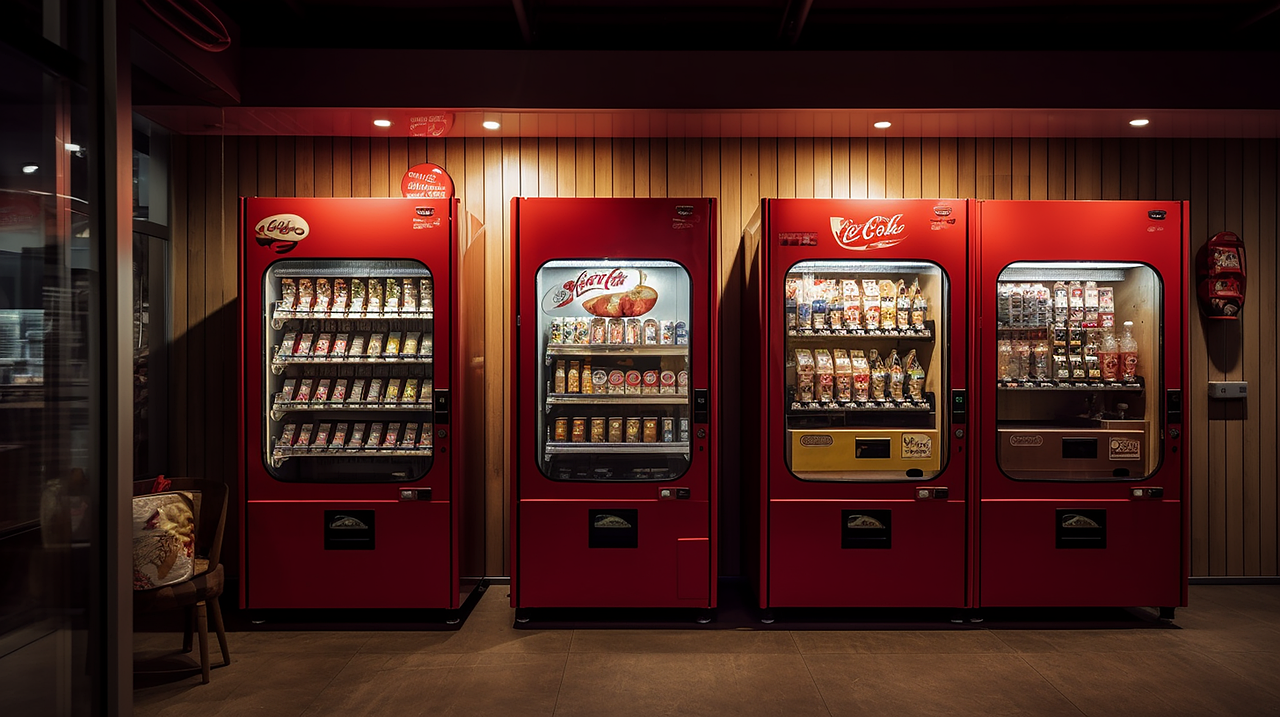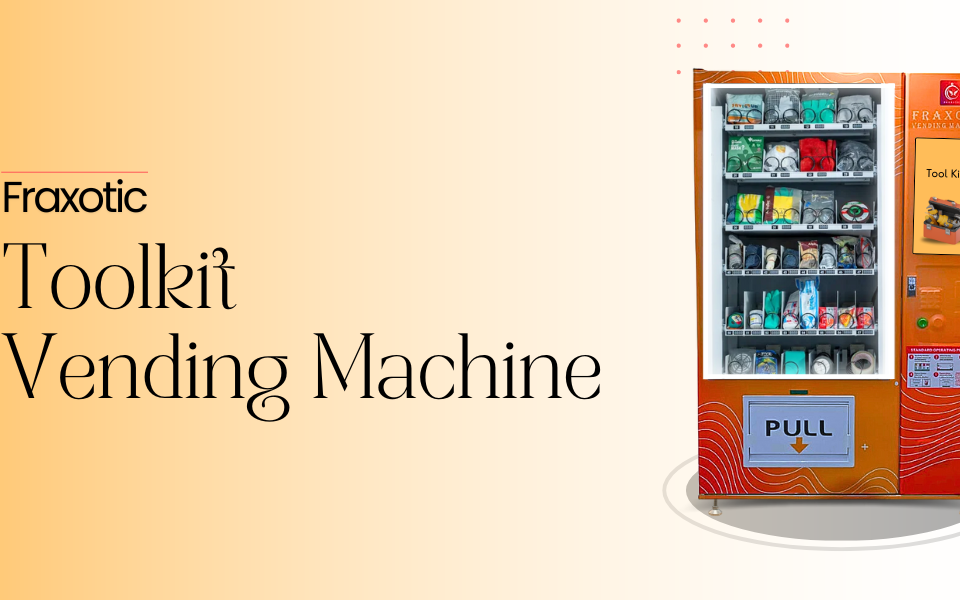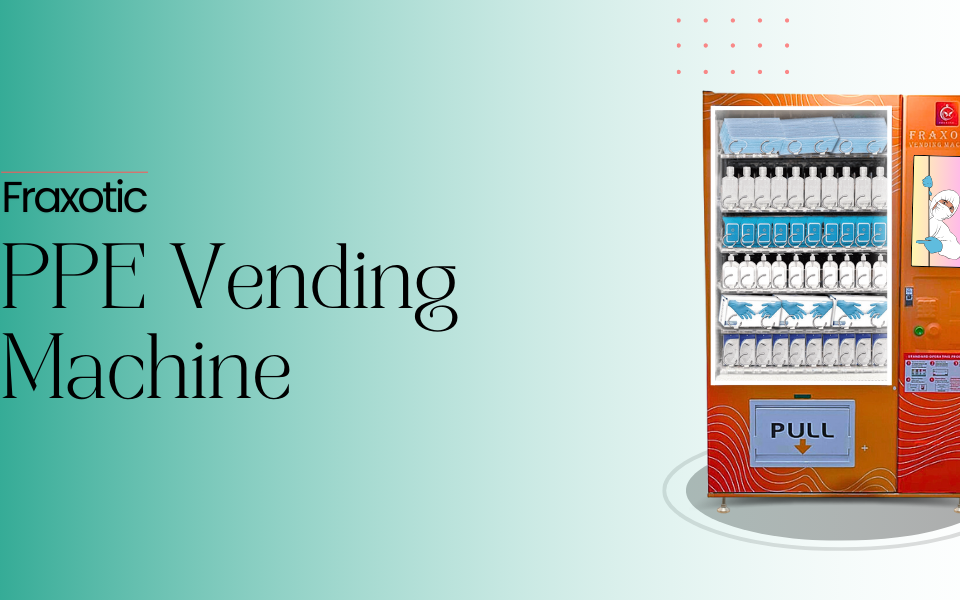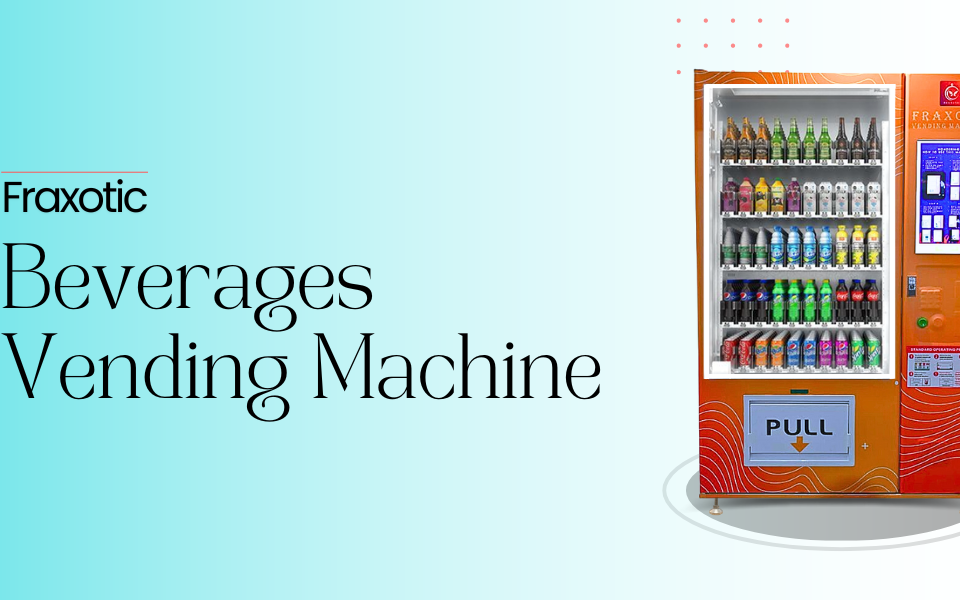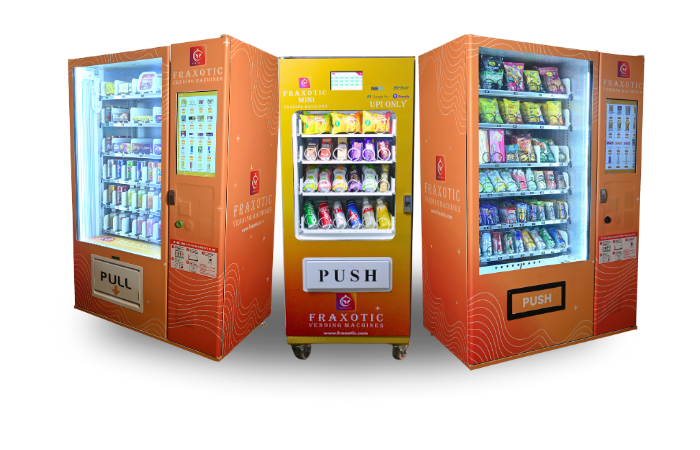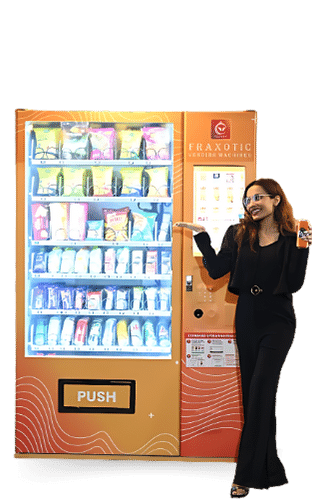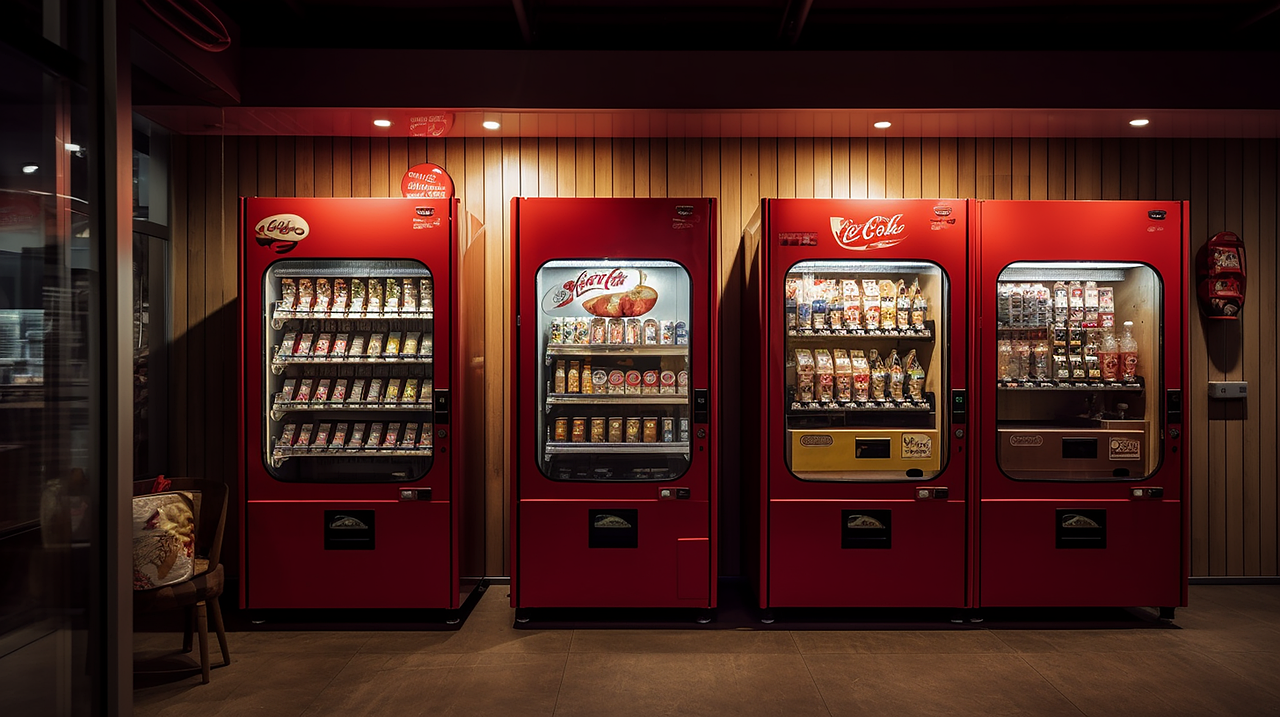
Vending Machine Profit 2024
November 16, 2023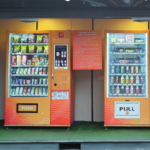
Fraxotic Food ATM | Vending Machine Experience Center
November 27, 2023Vending machines have emerged as a rapidly growing industry with immense profit potential in India. With millions of transactions and revenues in the country, the vending machine business has become one of the most promising and exciting ventures to pursue.
In this article, we will explore the various aspects of the vending machine business in India, including the types of vending machines, investment requirements, profit margins, and the overall profitability of this industry.
Types of Vending Machines
Vending machines come in different types, each serving a specific purpose and catering to different product categories. Let’s take a closer look at some of the popular types of vending machines:
1. Ambient Vending Machines
Ambient vending machines do not have refrigeration capabilities and are suitable for dispensing products like snacks, chips, biscuits, newspapers, and books. These machines are ideal for locations where refrigeration is not necessary.
2. Combo Vending Machines
Combo vending machines, on the other hand, have both refrigerated and non-refrigerated compartments. They can accommodate a wide range of products, including snacks, chips, biscuits, soft drinks, beverages, juices, and even cold coffee. The combination of refrigerated and non-refrigerated sections allows for greater product diversity.
3. Beverage Vending Machines
As the name suggests, beverage vending machines are fully refrigerated and primarily focus on dispensing soft drinks, beverages, juices, and cold coffee. These machines are designed to keep the beverages cold and refreshing, making them ideal for high-demand areas.
4. Elevator Vending Machines
Elevator vending machines are equipped with an elevator mechanism that safely dispenses fragile or delicate items. This type of machine is suitable for selling groceries, vegetables, and other items that require gentle handling to prevent breakage.
It is important to note that vending machines typically have multiple trays, allowing for a significant number of products to be stocked. The number of trays can range from 5 to 7, with each tray capable of holding 40 to 50 products. This means that a vending machine can house a total of 200 to 350 products at a time.
Investment Requirements for Vending Machine Business
Like any business venture, the vending machine business requires an initial investment to get started. However, compared to other businesses, the investment required for a vending machine business is relatively low. Let’s break down the investment perspective:
Assuming the purchase price of a vending machine is Rs. 1,00,000/-, with a return on investment (ROI) of 15% to 18%, it is possible to cover the purchase price within one year. This implies that the vending machine can generate profits to recoup the initial investment relatively quickly.
In addition to the vending machine itself, there are other costs to consider. If you choose to partner with a technical aggregator, you might need to pay a nominal monthly subscription fee for their services. This fee allows you to access the necessary resources and support to operate your vending machine business smoothly.
Apart from the initial investment in the vending machine and the aggregator’s fees, you also need to allocate funds for stocking the inventory. The average price of a product is around Rs. 30/-, and for a machine with 200 to 300 products, you would need to invest approximately Rs. 6000/- to Rs. 9000/- to fill the inventory. This amount should be kept on hand to restock the machine on a weekly basis.
Profit Margins in the Vending Machine Business
The profitability of a vending machine business largely depends on the location and the products being sold. According to a study by IBIS World, vending machines are most commonly placed in office premises, while they are less prevalent in bars and clubs. Therefore, choosing the right location plays a crucial role in determining the success and profitability of a vending machine.
1. Determine Revenue:
Calculate the total revenue generated by the vending machine. This is the total amount of money collected from the sales of products over a specific period (e.g., monthly, quarterly).
Revenue = Number of items sold × Selling price per item2. Calculate Cost of Goods Sold (COGS):
This includes the total cost to purchase the products that are sold in the vending machine.
COGS = Number of items sold × Cost price per item3. Calculate Gross Profit:
Subtract the COGS from the total revenue.
Gross Profit = Revenue − COGS4. Calculate Operating Expenses:
These include costs such as electricity, maintenance, restocking, location rental fees, and any other operational expenses.
Operating Expenses = Electricity + Maintenance + Restocking + Location fees + Other expenses5. Calculate Net Profit:
Subtract the operating expenses from the gross profit.
Net Profit = Gross Profit − Operating Expenses6. Calculate Profit Margin:
The profit margin is calculated by dividing the net profit by the total revenue and then multiplying by 100 to get a percentage.
Profit Margin = (Revenue / Net Profit) × 100Summary of Different Profit Margins
- 15% Profit Margin:
- Revenue: ₹1,60,000
- COGS: ₹64,000
- Operating Expenses: ₹72,000
- Net Profit: ₹24,000
- 30% Profit Margin:
- Revenue: ₹1,60,000
- COGS: ₹64,000
- Operating Expenses: ₹48,000
- Net Profit: ₹48,000
- 50% Profit Margin:
- Revenue: ₹1,60,000
- COGS: ₹64,000
- Operating Expenses: ₹16,000
- Net Profit: ₹80,000
These calculations show how varying the profit margin affects the net profit and operating expenses while keeping the revenue and COGS constant. The specific values for COGS and operating expenses would vary based on the actual costs associated with running the vending machine business.
The more products you have in your vending machine, the higher the potential for profit. According to Hustle Magazine, profit margins in the vending machine business can range from 15% to 50%, depending on the type of product being sold. By doing the math, it is possible to earn a monthly profit of Rs. 8,400/- to Rs. 21,000/-.
To provide a better understanding of the profit potential, let’s consider a scenario where a vending machine offers chocolates, chips, and cold drinks. If the machine sells an average of 30 transactions per day, with 8-10 chips, 8-10 chocolates, and 9-11 cold drinks per transaction, the revenue can reach a whopping Rs. 32,100/-. This translates to a monthly profit of Rs. 9,100/-.
However, it is important to note that the profit margins can vary depending on the product. For example, the margin on soft drinks and beverages can be as high as 40%, while for chips and chocolates, it ranges from 25% to 35%. By diversifying the product offerings and catering to different customer preferences, it is possible to maximize the profit margins.
In addition to the traditional vending machine products, there is an opportunity to expand the range of offerings. Vending machines can also dispense items such as pizza, shoes, books, toys, newspapers, medicines, and flowers. The key is to automate the retail process and provide the right products to the right audience at the right time.
The Advantages of Vending Machine Business
The vending machine business offers several advantages that contribute to its profitability and appeal. Let’s explore some of these advantages:
1. Low Initial Cost
Compared to other business ventures, the vending machine business has a relatively low initial investment requirement. With a minimal upfront investment, entrepreneurs can enter the market and start generating revenue within a short period of time. The low cost allows for greater flexibility and reduces the financial risks associated with starting a new business.
2. Passive Income Generation
One of the key advantages of the vending machine business is the potential for passive income generation. Once the machines are placed strategically, they can generate income around the clock, requiring minimal intervention or management. This aspect makes vending machines an attractive option for individuals looking to diversify their income streams or start a side business.
3. Health and Wellness Focus
In recent years, there has been a significant emphasis on health and wellness among consumers. People are more conscious of the food they consume and seek healthier options. Vending machines have adapted to this trend, offering a variety of nutritious and functional food and beverage products. By providing healthier alternatives, vending machine businesses can tap into the growing demand for health-conscious options.
4. Niche Offerings and Customization
Vending machines are no longer limited to traditional snack and beverage options. They have evolved to cater to niche markets and offer specialized products. Companies like Country Delight and Licious have identified white spaces in the supply chain of certain FMCG products and have successfully incorporated vending machines into their sales strategies. This customization and ability to cater to specific niches enhance the profitability of the vending machine business.
5. Scalability and Expansion Opportunities
Once a vending machine business starts generating profits, it can easily be scaled up by investing in additional machines, securing better locations, and hiring additional staff. This scalability allows entrepreneurs to expand their operations and increase their revenue streams. The vending machine business can be a family venture, providing an opportunity for everyone to work together and learn the ropes of business management.
6. Cost-Effective Investment
Compared to other business models, vending machines offer a cost-effective investment option. Setting up a traditional brick-and-mortar store involves significant expenses such as securing a suitable location, interior design, stocking inventory, and hiring employees. In contrast, vending machines require a lower initial investment, making them an attractive option for aspiring entrepreneurs.
7. Aggregator Model for Simplified Operations
With the emergence of technology aggregators, the vending machine business has become more streamlined and efficient. These aggregators provide an all-in-one platform for managing vending machine operations, including inventory management, sales data, machine health monitoring, and even digital marketing. By utilizing these platforms, vending machine operators can optimize their operations and maximize their profitability.
8. Digital India and Cashless Payments
India’s digital revolution has created a conducive environment for the vending machine business. With increased broadband access, smartphone penetration, and the adoption of cashless payment methods, vending machines can cater to a larger customer base. By accepting credit cards, debit cards, and mobile payment systems, vending machine operators can tap into the growing digital economy and provide convenient payment options to their customers.
Conclusion
The vending machine business in India presents a lucrative opportunity for entrepreneurs seeking a profitable venture. With low initial investment requirements, high-profit margins, and the ability to tap into niche markets, vending machines have the potential to generate significant revenue streams. The advantages of passive income generation, scalability, and customization further enhance the appeal of this industry. By leveraging technology and embracing the digital revolution, vending machine operators can capitalize on the growing demand for convenient, on-the-go products. As India moves towards a more automated retail landscape, the vending machine business is poised to thrive and offer a profitable business opportunity for those willing to seize it.
FAQs about the Vending Machine Business in India:
Vending machines in India can dispense a wide range of products, including snacks, chips, biscuits, beverages, cold coffee, newspapers, books, groceries, vegetables, and more. The product variety depends on the type of vending machine chosen.
The initial investment for a vending machine business in India is relatively low. Assuming a vending machine purchase price of Rs. 1,00,000/-, entrepreneurs can expect a return on investment (ROI) of 15% to 18%, covering the purchase price within a year.
Profit margins in the vending machine business can range from 15% to 50%, depending on the type of product being sold. By diversifying product offerings and catering to different customer preferences, entrepreneurs can maximize profit margins.
The success of a vending machine business is closely tied to its location. Placing machines strategically in high-demand areas, such as office premises, can significantly impact profitability. Choosing the right location is crucial for attracting a steady flow of customers.
In addition to the vending machine’s initial cost, operators may incur a nominal monthly subscription fee if they choose to partner with a technical aggregator. Funds are also needed for stocking inventory, with the average product price at around Rs. 30/-. Weekly restocking is essential for continuous operation.
The digital revolution in India has created opportunities for vending machine businesses to accept cashless payments, enhancing customer convenience. Technology aggregators provide platforms for streamlined operations, inventory management, and digital marketing, optimizing overall efficiency.
Yes, vending machine businesses offer scalability. Once profits start rolling in, entrepreneurs can invest in additional machines, secure better locations, and expand their operations. This scalability allows for the growth of revenue streams and business expansion.
Vending machines are no longer limited to traditional snacks and beverages. They can cater to niche markets, offering specialized products. The ability to customize product offerings enhances the profitability of the vending machine business by meeting specific customer demands.
The growing emphasis on health and wellness among consumers has influenced vending machine offerings. Machines now provide a variety of nutritious and functional food and beverage products, aligning with the demand for healthier options in the market.
Vending machines, when strategically placed, have the potential to generate income around the clock, requiring minimal intervention. This aspect makes the vending machine business an attractive option for individuals looking to diversify their income streams or start a side business.
Are you ready to tap into the potential of the vending machine business and maximize your profit? Get in touch with our team of experts today to explore how you can embark on this exciting journey and unlock the lucrative opportunities that the vending machine industry has to offer!

